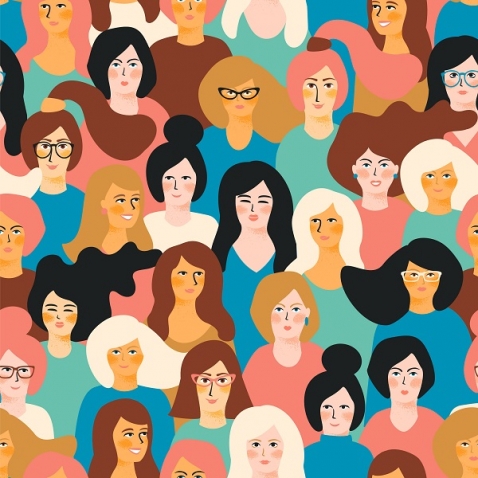Open data to solve women's challenges and promote equality
Fecha de la noticia: 18-12-2018

During 2018, a large number of acts and demonstrations that sought to promote gender equality have taken place. The feminist demonstrations of March 8 or the #metoo movement (which began at the end of 2017) highlighted the need to promote real equality in all society sectors.
Open data, just as it have contributed in other fields, such as health, tourism or entrepreneurship, can be a very useful tool to help achieve gender equality. But first it is necessary to overcome a series of challenges, such as:
- The existence of a gender gap in data: data disaggregated by sex allows us to understand if there are inequalities between people of different gender and make decisions that can help reduce those inequalities. However, there are still significant shortcomings in this type of data.
- Few women in open data ecosystem: As in other technological sectors, the number of women that participate in open data ecosystem is reduced. This means that their vision and concens are sometimes left out of the debate table. As an example, The Feminist Open Government Initiative was created to encourage governments and civil society to defend gender advances in a context of open government, but it is mainly managed by male members.
To solve these challenges, various groups of women have been created, such as Open Heroine, composed of more than 400 women worldwide working in the fields of open government, open data and civic technology. It is a virtual space where women can share their experiences and reflect on the challenges they face, as well as promote a higher presence of women in the open data discussion groups. This association was responsible for one of the pre-events held within the framework of the last International Open Data Conference. Through a "do-a-thon" format, they created working groups to try to solve challenges such as the prevention of femicides or the gender gap in data from Buenos Aires city.
In Spain, there are also organizations trying to boost the presence of women in these fields, but from a general point of view. For example, the project "I want to be an engineer", from the University of Granada, seeks to boost the presence of women in careers related to STEM (Science, Technology, Engineering and Mathematics). For this, they visit secondary education centers, and an Engineering Fair and a summer campus are held. It should be pointed out that, although women represent 54% of the Spanish university population, they only are 10% in ICT careers, according to Ministry of Education data.
Another example is the "Women and open data" space of Barcelona Open Data Initiative. This space shows visualizations as the result of 3 events organized by Barcelona Open Data to explore open data sources and solve social challenges related to women: Data X Women, Wiki-Data-Thon and Women Poverty and Precariousness Index. These visualizations allow us to see gender differences in areas such as home care and street maps in big cities such as Barcelona. They also promote the creation of digital solutions that facilitate the respond to these differences.
Women are 50% of society and they should be represented in all areas. Although its presence is increasing in the open data community (as Aporta Meeting showed), there is still work to be done: we need more gender data and more spaces to analyze and try to solve the women challenges using open data.











